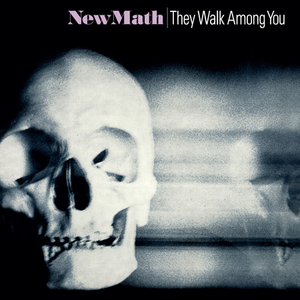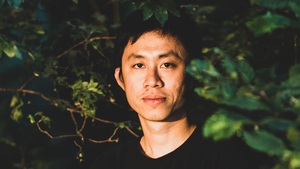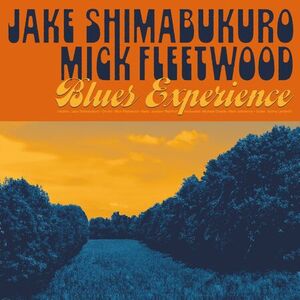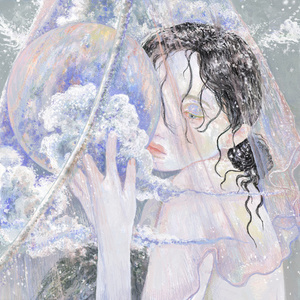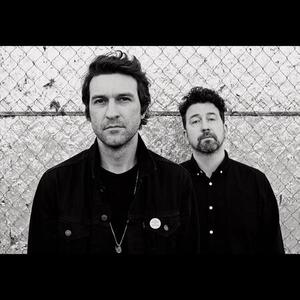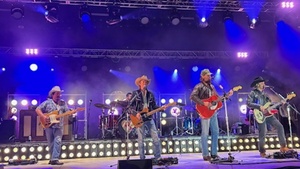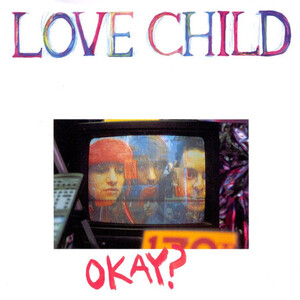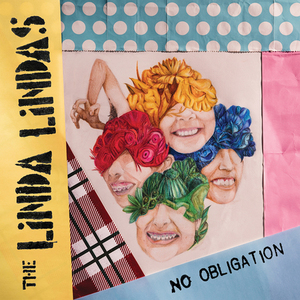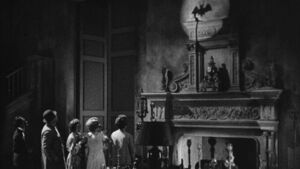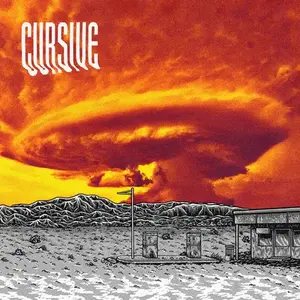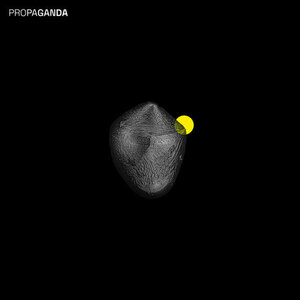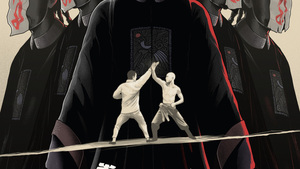Josh Roseman
Oatmeal, Sun Ra, and Freaky Little Hippie Girls: The Trombone Rebel Breaks Out on His Own
Matt Cibula
“josh1”
I talked with Josh Roseman for about an hour on the phone. We veered off onto many subjects that I didn’t cover here – one of them was my childhood trombone history, which reached its apex when I hooked Andre Bertrand’s nostril with my spitvalve and pulled him over backwards in sixth grade. It was beautiful, and Roseman appreciated it. After a slow beginning (my kids got hungry, Roseman’s neighbor’s dogs were barking at him in a creepy way), we started discussing his stunning debut album, Cherry, and how it came to be.
• •
When did you start playing trombone?
Nine years old, dude. I was a band nerd who eventually turned into a band jock.
Do you remember your first horn?
It was my dad’s horn: a Conn 6-H.
Hey, my trombone was a Conn.
Yeah, my dad got me into the whole horn culture vibe. You picked up that horn and you could smell all the way back to John Philip Sousa.
Your father is a dentist who played trombone. That had a huge impact on you.
My dad is the shit. He’s an amazing cat. I used to play in big bands with my dad when I was little. My house was always full of music. He sang in a barbershop quintet at our house once a week, and he was in a brass quintet once a week too. He’s always had a surreal sensibility. It was all over for my ass at an early age – there was a whole neo-Oedipal thing with music from as early as I can remember.
Who are your top five trombonists of all time?
I can’t really give an objective reading on this, so make sure you tell people that this is completely biased. Right now, I’d have to say George Lewis, Bob McChesney, Barry Rogers, Slide Hampton, Julian Priester. I’m mentioning mainly modern guys, guys who are playing now who I think are really doing interesting and innovative stuff.
Is there a kind of trombone lineage thing in your mind?
Well, yeah. There are two major schools. You have your Dionysian string, kind of the Flavor Flav thing happening, starting with the swing school, with Bill Harris, Buster Cooper, Roswell Rudd, Grachan Moncur, Craig Harris. Really “out there” guys. Then there’s the more lyrical, Apollonian types…
The Chuck D school?
Yeah, the ones who can just play and bring people along. Like Laurence Brown, Tommy Dorsey, J.J. Johnson, Slide Hampton. Curtis Fuller, too.
Which side are you on?
What I’m trying to do is unite the two schools, and a lot of the guys I mentioned before are trying to do that too. My whole career – hell, my whole life – has been about integration: ethically, musically, culturally, technologically. That’s really where Cherry comes in, with jazz and rock and all that.
What are your all-time starting five jazz albums?
Five, huh? Damn. Okay, well, Filles de Kilimanjaro by Miles Davis, Charlie Parker’s Dial Sessions… Wow, this is difficult. Let’s go with [John] Coltrane’s Crescent, Such Sweet Thunder [by Duke Ellington], and, uh, let’s go with Ballad of the Fallen by Charlie Haden.
And let’s have a starting five for rock albums.
Beatles. Abbey Road. [Jimi] Hendrix’s Cry Of Love. Does it have to be rock? If we’re allowing funk…
Of course we’re allowing funk.
Then James Brown’s The Big Payback, definitely. Okay, Marvin Gaye with Let’s Get It On, and round it off with [Bob Marley’s] Exodus.
Who would win between these two teams? Jazz vs. rock?
If they have to fight, I’m not watching. I’m reading a book.
You’ve played with a lot of impressive people. Who was the most important and/or eye-opening?
Before I went to New York, I wanted to ally myself with the electric free-bop movement which ruled there at that time: James Blood Ulmer, Oliver Lake, David Murray, Henry Threadgill – all those post-AACM black artists. Plus, M-Base was huge back then too, and I wanted to be part of that. And there was Richard Muhal Abrams, and Lester Bowie, obviously. That was my pedigree, and I was lucky enough to play with all those cats.
So you were just in heaven.
Yeah. But one thing I didn’t understand until later was that New York is always changing, and there was stuff that I found that I just kind of serendipitously fell into: Don Byron, for one.
How was it playing with him? He seems like he’d be pretty intense.
For me, he’s a modern link back to Sonny Rollins and that whole vibe. His tone, everything; he’s got a whole very unusual harmonic and rhythmic thing. I got involved in his klezmer project, and there were a lot of us playing on that – we’d have 13 people bouncing things off each other. It was like it’s always the fourth quarter with Don, and he’s just throwing the ball up there.
Let’s talk about some other people. Henry Threadgill is pretty amazing.
Henry is a huge inspiration for all of us, as a composer, as a player – he’s amazing on both the alto sax and the flute. I heard him play at Lester Bowie’s memorial service and it was just… it wasn’t music anymore, man. He was playing light up there.
Do you want to talk at all about Lester Bowie, or is that too emotional a subject?
Lester was funny. He made me laugh a lot. On this record it was just amazing, because Lester was playing with [Dave] Fiucz[ynski] and [John] Medeski for the first time, and it was just blowing all of our minds that we were playing with Lester. We’re in the studio recording this wacky kooky rendition of “Smells Like Teen Spirit” with no charts, and I’m trying to explain the way the song goes to Lester, you know, “And then this part just repeats four times, da da da da, da da da da,” and Lester just looks at me and says, “Boy, are you crazy?” And then we start, and he lifts his horn to his mouth and out comes this big bumbling cackling sheepdog thing. Lester was very important to me. He took me out of my game a bit.
Let’s talk more about Cherry. It was recorded in what, 1998?
Yeah.
How long were you in the studio? A few months?
Two days, my friend.
No way.
Oh yeah. We recorded a bunch of stuff. A lot of it didn’t make onto the album. We did “At Seventeen” by Janis Ian – I actually sang on that one. That’s probably why it didn’t make the record. We did Grandmaster Flash and the Furious Five’s “White Lines,” too.
Why did it take so long to come out?
Well, it was supposed to be on Blue Note back in 1999, but they did what Blue Note always does: they strung me along for a long time and then didn’t do anything with it. So we searched for someone to do it, and found someone eventually. [It was released on Enja in Europe in 2001.]
This is the first release on Knitting Factory Records, right?
Well, it’s a joint release with Knitting Factory and Velour Records.
Those drums on “Kashmir” are out of control! It kind of sounds like John Bonham and Tony Williams have both come back from the dead on that one. Who is that?
That’s Joey Baron. I played with his group Baron Down for a while – that group is sick. Just drums, sax, and trombone. You can’t play with Joey without getting your head re-wired.
Who plays that stinging guitar solo on “Land of Make Believe?”
That’s Dave Fiuczynski, man. He’s one of my homeys from the [New England] Conservatory; he and Medeski and I all went to school together. Dave’s got a band called Screaming Headless Torsos, and he’s played with Me’Shell Ndegéocello.
You cover two Sun Ra songs on Cherry: “Daddy Gonna Tell You No Lie” and “Love in Outer Space.” Talk about the importance of Sun Ra. How underrated do you think he is in jazz history?
I’ll tell you the truth: it’s a funny place to be living in now. Everything’s so market-driven. Sun Ra was so ridiculous and amazing – I’m still trying to understand him. I hung out with him a bunch of times, because we’d keep running into each other on the road, and I had some strong ties to the Arkestra, and he was so cool to me. I’ve been studying his career, listening and watching some of the old videos of their live shows. The guy just demonstrated such communality and integrity; he was so principled in a way.
Why do you think people are so afraid of him?
The human species… we’re very sensual and we use our eyes and ears to receive all our information. And yeah, eyes and ears are important tools, but there’s more out there. Anyone who tries to understand that, and anyone who tries to figure out the basic facts of our existence, is going to be looked at funny. I mean, the fact that we’re alive at all, on this planet, which is in this solar system, and in this universe – it’s nuts! But that’s reality, that’s our reality. That’s what [Sun Ra] was trying to get at with his music, with his live shows. Does that make any sense at all?
Yep. So is your song “Frank Mills Jr.” related to Frank Mills, the guy who did “Music Box Dancer”?
No. It’s kind of a take-off on the song “Frank Mills” from the musical Hair. The chord sequence.
Oops. I’m embarrassed that I don’t know more about musicals.
Don’t be.
Are you touring behind this record?
Anyone who wants to get us some gigs, we’re there. Send us an e-mail! (josh@joshroseman.com)
Who’s in your live band?
Right now, it’s Peter Apfelbaum on saxophone, John Maron on bass, Barney McAll, who is a brilliant dub keyboardist – I know, because I taught him – and who also does sound effect stuff for us. We have Ben Monder on guitar, and for our drummer we have Billy Kilson.
What’s the difference being a bandleader as opposed to all the side-work you’ve done?
Leading a band is so fulfilling. It’s harder, and you have to be a lot more accountable, but it’s all about responding to opportunity. As the actor Jeffrey Wright said, “I got into this to get some shit off my chest!” That’s the way I feel about leading the band. That, and I get to serve my little community, provide some exposure to people I think are really great players, some of the best in the world. I have another CD coming out this year with one of my other projects, Xenophilia.
As an interviewer, I have to ask one asshole question, so here goes: “Are you ever afraid that with so many projects and so many things going on, that you’re losing focus?”
Naw. [Pause] No, not at all. Everything all gets together; it’s like the peanut butter gets on the chocolate and the chocolate gets on the peanut butter. Are you kidding? I just step back and look at who I’m working with – to be able to play every day with Peter Apfelbaum is just amazing to me. And it’s not just skill – everyone’s evolving all the time. Dave Holland is doing some amazing stuff with big band writing, and I’m into that; I’m getting to work with Dave Douglas, and that’s the funky stuff! And I’m playing with Soulive some, too – those cats have something interesting going on.
What’s the best question I didn’t ask?
How about: “Josh, what’s a good recipe for oatmeal?” And my answer for that is: “Don’t use the instant stuff.” They take off too many of the husks or something – it’s no good. Oatmeal is important.
Any other questions?
I have a question: Why did that freaky little hippie girl dump me? I don’t understand it, man – I was a stand-up guy with her! And she was cute, too! Or here’s another one you could have asked: “What’s it like being a sex symbol rock-star trombone player?” It’s hard, man, with my beeper blowing up all the time with numbers and stuff…
Did it ever hamper your love life in school, having that little half-circle thing over your lip from playing ‘bone?
I thought that shit was COOL!
Anything else?
The best question is: What the fuck is happening with people? Why don’t people understand what’s important? I mean, okay, I listen to new music, rock and funk and even some of the crappier R&B stuff today, I’m down with it. But it’s so disposable. Music – and everything – used to be about making an impact, being timeless. How is it that our culture has gone so far in the other direction? What is it with our culture that people go for all that disposable stuff? Why?
I don’t know.
Me neither. Hmmm.
• •
Josh Roseman: http://www.joshroseman.com • Knitting Factory Records: http://www.knittingfactory.com ◼

